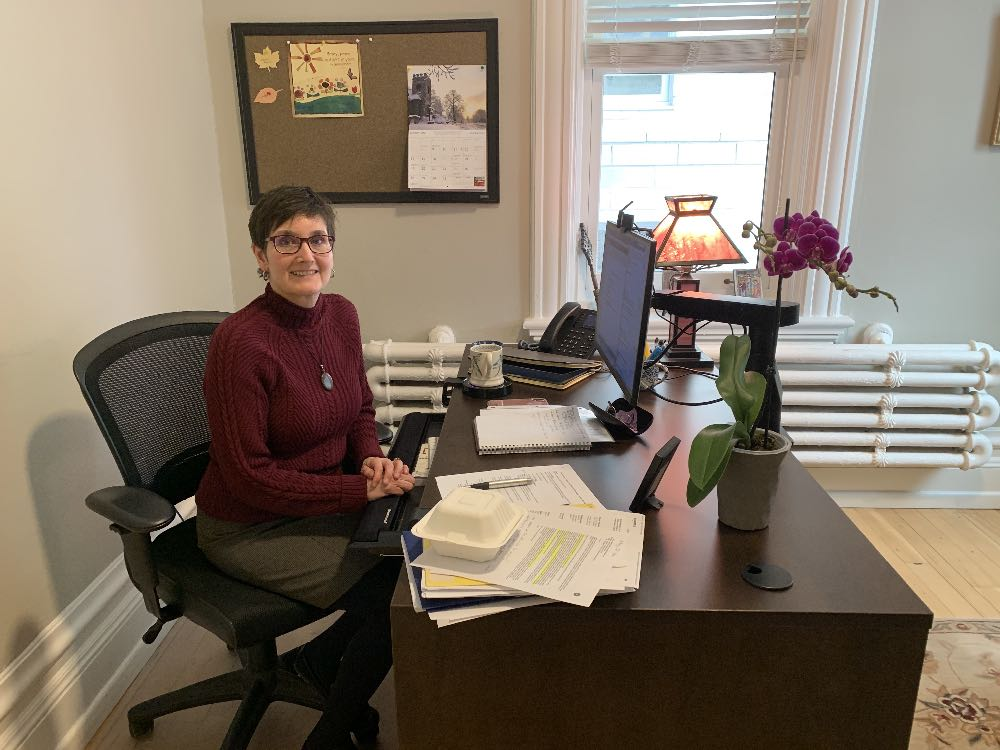Looking ahead to International Women’s Day on March 8, Crosstalk spoke with Executive Archdeacon Linda Hill, the link for the ecclesiastical province of Canada in the International Anglican Women’s Network (IAWN), who is working to revive and rebuild Canadian involvement in the network.
Canadian women helped create IAWN, as you can read in our tribute to the late Rev. Canon Alice Medcof (below), but in recent years, involvement had waned.
The first big project Hill got started with was a survey of women’s leadership in the Anglican Church of Canada. She and Dr. Andrea Mann, director of global relations for the Anglican Church of Canada proposed the survey and the Rev. Dr. Neil Elliot, statistics and research officer for General Synod, designed it.
Conducted in 2022, it was “intended to offer a reflection of women’s leadership and authority in the Anglican Church of Canada in 2022 as the Church approaches the 50th anniversary of women’s ordination (2026).” It was not intended as an exhaustive examination of the subject, but a snapshot “to stir the curiosity of people of all genders as they consider the contributions of women to the leadership of the church in recent years, as well as where, in working toward gender equity, we still need to encourage and welcome women’s gifts.”
The report noted that research on gender identity and gender equity needs to be considered anew and carefully. The team consulted with the Rev. Dr. Wendy Fletcher, principal of Renison College, to discuss whether research about women per se was still relevant. After some discussion, Fletcher said it is still important use the word “women” in a survey such as this: “Being a woman does mean something,” she said. Indeed, what it means to be a woman in the church remains an important question.”
Twenty dioceses (67%) responded to the survey. As promised, statistics for individual dioceses were kept confidential, but the national averages in diocesan ministry were:
55% of central diocesan leadership groups were women (lay and ordained)
41% of bishops were women
35% of priests were women
60% of deacons were women
The proportion of paid and unpaid clergy is similar between women and men. There are significant variations across both rural and urban dioceses.
In its analysis of the results, the team wrote: “It is clear that the Anglican Church of Canada has much to celebrate. From sea to sea to sea women are being called to ministry and authority in the church. Not only do women comprise 55% of diocesan leadership, over forty percent of our bishops today are women. …However, the results also make it clear that we cannot remain complacent. It is a concern that only 35% of priests in dioceses are women. In addition, there are regional variations in diocesan results that reflect that women’s leadership is not well-accepted in every diocese.”
In her work as the IAWN link for Canada, Hill said the goals are broad—celebrating women’s ministries, both lay and ordained; seeking an end to violence against women; and achieving equity.
An interactive webinar on Feb. 26 (8 am to 10 am Pacific Time) will honour the 30th anniversary of the episcopal ordination of Bishop Victoria Matthews, the first woman to be ordained bishop in the Anglican Church of Canada. Panelists will be:
Bishop Victoria Matthews, episcopal administrator with the Diocese of Moosonee, who has served as suffragan bishop in the Diocese of Toronto, as Bishop of Edmonton in Alberta and as Bishop of Christchurch in New Zealand
Bishop Sarah Mullally, Bishop of London, England
Bishop Riscylla Shaw, suffragan bishop, Diocese of Toronto
Archbishop Kay Goldsworthy, Archbishop of Perth, Anglican Church of Australia
For more information visit: https://www.anglican.ca/primate/30th/



An abiding sense of thanksgiving